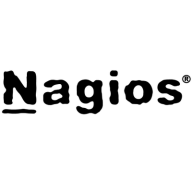

Splunk Enterprise Security and Nagios Log Server compete in the cybersecurity and log management domain. Splunk generally has the upper hand due to its comprehensive features and superior support; however, Nagios appeals with its straightforward deployment.
Features: Splunk Enterprise Security offers comprehensive analytics capabilities, advanced threat monitoring, and seamless integration with various data sources. It allows for real-time alerts and operational intelligence, excelling in advanced threat detection and analytics. Nagios Log Server emphasizes efficient log aggregation, customizable alerts, and a simple method for managing log data. It is highly regarded for ease of use, log management efficiency, and a straightforward user interface.
Room for Improvement: Splunk may improve by simplifying deployment processes and reducing its learning curve. Enhancements in cost efficiency could further broaden its appeal. Nagios could expand its analytics capabilities and integrations with third-party applications. Enhancing user support systems and documentation would also benefit Nagios users, making it more competitive with high-end solutions.
Ease of Deployment and Customer Service: Nagios Log Server stands out for ease of deployment, providing a straightforward configuration backed by reliable service. Splunk Enterprise Security, although requiring a more complex setup, benefits from top-tier support and thorough documentation, offering extensive deployment resources that assist users in maximizing the product’s capabilities.
Pricing and ROI: Splunk Enterprise Security requires a higher initial investment, supported by its comprehensive features that promise a higher potential ROI for organizations needing advanced cybersecurity capabilities. Nagios Log Server presents a more cost-effective option upfront, with focused log management solutions that appeal to those prioritizing budget-friendly alternatives.


Nagios Enterprises delivers official products, services, and solutions for and around Nagios – the industry standard in enterprise-grade IT infrastructure monitoring. With millions of users worldwide, Nagios is the undisputed champion in the IT monitoring space. Our team of dedicated professionals works to ensure total customer satisfaction with all the services we provide. Our extensive network of partners helps extend Nagios services and solutions to new organizations and markets worldwide to meet a variety of business needs. Nagios Enterprises was founded in 2007 by Ethan Galstad. Ethan created what would later become known as Nagios in 1999, and currently serves as the President of Nagios Enterprises.
Splunk Enterprise Security is widely used for security operations, including threat detection, incident response, and log monitoring. It centralizes log management, offers security analytics, and ensures compliance, enhancing the overall security posture of organizations.
Companies leverage Splunk Enterprise Security to monitor endpoints, networks, and users, detecting anomalies, brute force attacks, and unauthorized access. They use it for fraud detection, machine learning, and real-time alerts within their SOCs. The platform enhances visibility and correlates data from multiple sources to identify security threats efficiently. Key features include comprehensive dashboards, excellent reporting capabilities, robust log aggregation, and flexible data ingestion. Users appreciate its SIEM capabilities, threat intelligence, risk-based alerting, and correlation searches. Highly scalable and stable, it suits multi-cloud environments, reducing alert volumes and speeding up investigations.
What are the key features?Splunk Enterprise Security is implemented across industries like finance, healthcare, and retail. Financial institutions use it for fraud detection and compliance, while healthcare organizations leverage its capabilities to safeguard patient data. Retailers deploy it to protect customer information and ensure secure transactions.
We monitor all Log Management reviews to prevent fraudulent reviews and keep review quality high. We do not post reviews by company employees or direct competitors. We validate each review for authenticity via cross-reference with LinkedIn, and personal follow-up with the reviewer when necessary.